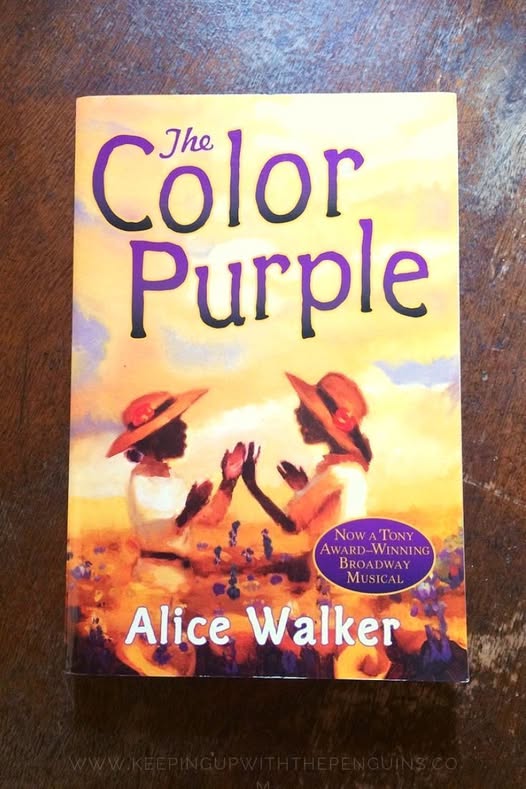Alice Walker’s The Color Purple is a thunderclap of a novel a story that cracks open the world and pours out light. Written in the raw, lyrical voice of Celie, a Black woman surviving the brutality of the early 20th-century American South, this 1982 Pulitzer Prize winner is not just literature it’s a lifeline.
Celie’s story begins in shattered silence. Raped by the man she calls “Pa,” her children stolen from her, married off to the abusive Mister Albert, she survives by making herself small writing letters to a God she imagines as indifferent as the men who hurt her. But Walker’s genius is in how she lets Celie’s voice grow like a wild vine, twisting through despair toward unimagined strength.
Enter Shug Avery blues singer, scandal, and Celie’s unlikely salvation. Shug teaches her that God isn’t some distant white man, but “everything that is or ever was or ever will be”—the color purple in a field, the pleasure of a shared kiss, the power of saying “I’m poor, Black, I may even be ugly but I’m here.”
Meanwhile, Celie’s lost sister Nettie writes letters from Africa that expose colonialism’s mirror to American racism, while Sofia’s defiant “All my life I had to fight” becomes a battle cry. Walker weaves their stories into a tapestry of resilience, showing how Black women’s love for each other, for themselves can be the most revolutionary force of all.
Banned for its unflinching portrayal of abuse and queer love, The Color Purple remains dangerous because it refuses to look away. Yet its greatest power lies in Celie’s transformation—from a girl who signs her letters “Your sister, Celie, meek and mild” to a woman who builds her own business, claims her desires, and finally tells Mister: “You a lowdown dirty dog, and that’s the truth.”
By the novel’s end, when Celie stands in a field of purple and declares “I’m here,” it feels like the first sentence of a new world. Walker didn’t just write a book handed generations of readers a torch.
Walker found the title in a 19th-century Black folk song about defiance. The color purple rare in nature, dazzling when found became her metaphor for the divine hiding in plain sight, waiting to be noticed.


